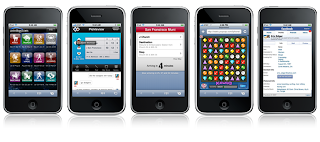Breaking News for AIM! This press release just in from Benetech..."U.S. DOE, OSEP awarded Benetech, along with partners WGBH National Center for Accessible Media (NCAM) and the U.S. Fund for DAISY, a $5 million, five-year award to establish an R&D center to transform the production of accessible digital images. DIAGRAM stands for (Digital Image and Graphic Resources for Accessible Materials).
Who benefits: U.S. students with print disabilities
About the DIAGRAM partners:
. Benetech, NCAM and USFDAISY have led technology initiatives that
fundamentally changed how people with visual and print disabilities
experience and interact with all forms of media, from the DAISY standard to
the Bookshare library to NCAM's work on image descriptions.
. All 3 have strong track record of working productively with
technology developers and hardware and software manufacturers to design and
extend accessibility features for people with print disabilities.
DIAGRAM's mission:. develop simple and cost-effective tools and best practices for
producers of accessible instructional materials, such as publishers and
state and local education agencies
. expand the field of image description and interactive exploration
of graphical content
. increase the understanding of accessible image production and
access strategies
. create open-source tools to make graphic content more accessible
and widely available
. make a broad range of general education curriculum accessible and
graphically understandable
. accelerate the development and inclusion of accessibility
specifications for high-quality images in electronic publishing standards to
support implementation by technology developers
. advance national efforts toward providing more equality of access
to benefit people with print disabilities.
Background:. Fewer than 5% of books are available in accessible format.
. Burden of accessible image preparation typically falls on
educators who have limited time and tools to create useful descriptions or
accessible graphics.
. Barriers to accessing information pose fundamental challenges for
students with print disabilities.
. Students using text-based accessible instructional materials are
presented with only the words "image" or "graphic" when using software
devices that encounter illustrations, equations, graphics, photos or
diagrams in digital textbooks.
. Numerous studies cite how students with disabilities benefit from
digital resources that offer flexible, multi-modal methods of interacting
with content. "
All the best to you!
Lon

Bookmark this on Delicious







